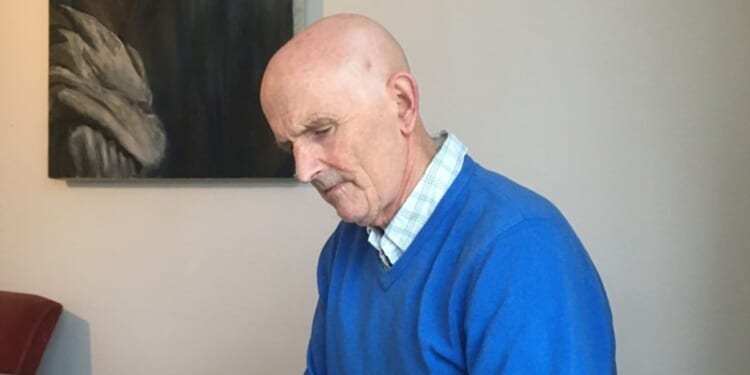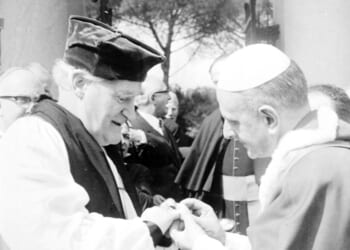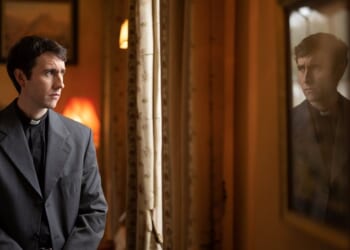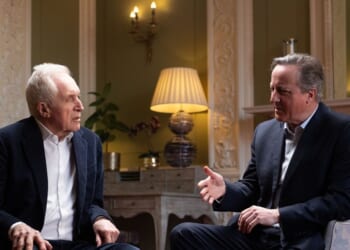WE START with a riddle: “What has keys but can’t listen to the beauty it unlocks? A piano.” And maybe that’s a doorway into why the piano is my holy place. The keys may be black and white, but there isn’t a colour under the sun they cannot create.
Not that I always thought so. In my childhood, a piano teacher who focused more on error than joy made the keyboard a place of terror rather than creation. And, aged 11, I had enough fear of failure in my being: I really didn’t need any more. If I’d had the courage, I’d have gone full col pugno (meaning “to bang the piano with a fist”). It was goodbye and good riddance.
But a friend of mine at school was a wonderful piano player. We wrote songs together. I did the words, he did the music, and these creations gave me pleasure — they’re even on iTunes. Yet, I never imagined that the piano might be something I could do as well. I’d left the arpeggios behind, hadn’t I?
And then, in my first curacy — an era of my life for which nothing had prepared me — the piano came to find me. “No teachers,” it said, “just you and me. How about it?” So I sat at the keyboard, and began playing chord sequences. It was nothing, really: just moods of my life in sound, from hope and harmony to dissonance seeking resolution; but with no judgement.
THIRTY-FIVE years on, I’m still at it. It’s akin to having a second language in which to speak, think, and pray. As Chopin’s relationship failed, he wrote: “I tell my piano the things I used to tell you.”
Meanwhile, my friend from school has carried on his remarkable musical journey. He is Frederic Chopin to my Les Dawson, and that’s OK. We are fellow travellers, literally swapping notes along the way.
I am indebted to my cousin, a piano teacher. At a family gathering, I asked her how much I should practise. She said, “Ten minutes a day.” “That’s not very much!” I declared. “No, it isn’t,” she said, “but it means you’ll do it.” And she was right: I did do it, until such time I was able to do more. The piano is a glory, but it’s also a piece of work. Hard work. We do what we can; and then something beyond our doing takes over.
AND, of course, the piano is at the heart of possibly the funniest sketch ever shown on TV, involving Morecambe and Wise, André Previn — and Grieg’s Piano Concerto. It includes Eric’s classic line, “I’m playing all the right notes, but not necessarily in the right order.” The laughter makes the piano a great deal holier for me.
With those black and white notes, every colour under the sun.
(If curious, you’ll find my songs on my website, simonparke.com, under “Songs for the journey”. This isn’t self-advertisement; more akin to self-immolation.)
Simon Parke is a counsellor and writer.

















